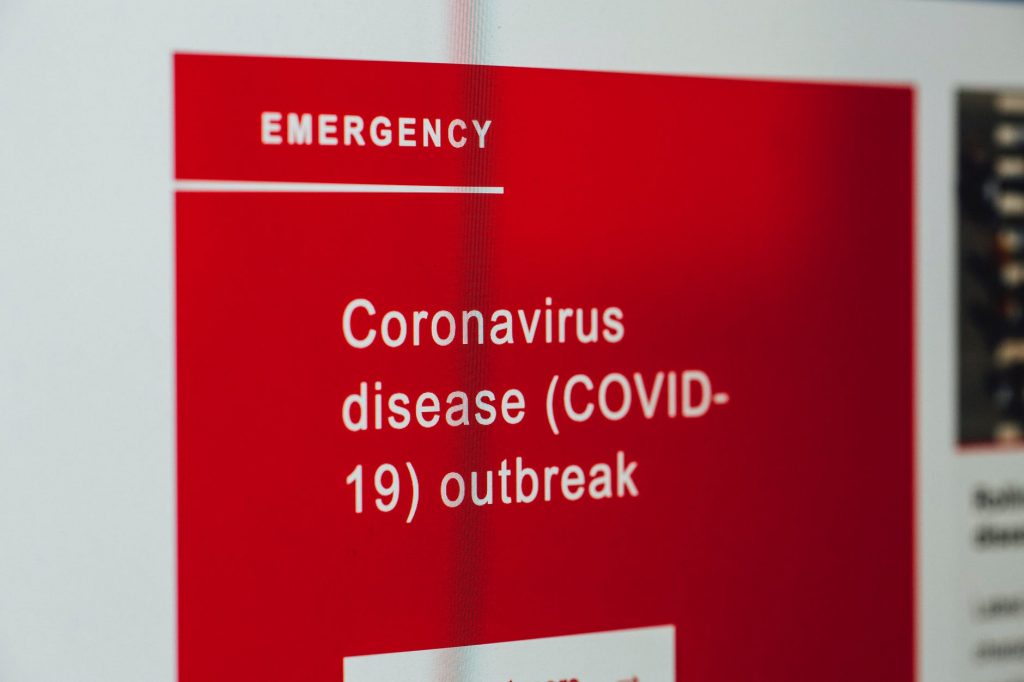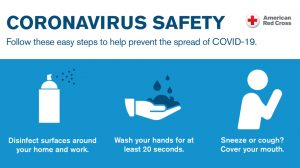Coronavirus: Safety and Readiness Tips For You By American Red Cross

The American Red Cross is closely monitoring the evolving outbreak of Coronavirus Disease 2019 (COVID-19), as well as following the latest guidance from the Centers for Disease Control (CDC).
We know this is a stressful time and people want to know what they can do right now to protect themselves and their families. That’s why the Red Cross is highlighting some everyday health safety and preparedness steps that people in the U.S. can take now in response to corona virus concerns.
CORONA VIRUS SAFETY
Follow These Steps To Help Prevent The Spread of COVID- 19
Video
Corona Virus Advisory Safety Tips

LIMIT THE SPREAD OF GERMS AND PREVENT INFECTION
There are common sense steps we can all take to prevent the spread of any respiratory virus:
- Get your flu vaccine.
- Avoid close contact with people who are sick.
- Stay home when you are sick.
- Cover your mouth and nose with a tissue when coughing or sneezing. It may prevent those around you from getting sick.
- Wash your hands often with soap and water for at least 20 seconds, especially after going to the bathroom; before eating; and after blowing your nose, coughing or sneezing. If soap and water are not readily available, use an alcohol-based hand sanitizer with at least 60% alcohol. Always wash hands with soap and water if hands are visibly dirty.
- Avoid touching your eyes, nose or mouth.
- Practice other good health habits. Get plenty of sleep, be physically active, manage your stress, drink plenty of fluids and eat nutritious food.
- Disinfect doorknobs, switches, handles, computers, telephones, bedside tables, bathroom sinks, toilets, counters, toys and other surfaces that are commonly touched around the home or workplace.
- Follow the CDC’s recommendations for using a facemask.
- CDC does not recommend that people who are healthy wear a facemask to protect themselves from respiratory diseases, including COVID-19.
- Facemasks should be used by people who are ill to help prevent the spread of the disease to others.
- The use of facemasks is also crucial for health workers and people who are taking care of someone in close settings (at home or in a health care facility).
GET YOUR HOUSEHOLD READY
There are things you can do right now to be ready for any emergency, and many of these same tips will help you prepare as the coronavirus situation continues to evolve in the U.S.
- Have a supply of food staples and household supplies like laundry detergent and bathroom items, and diapers if you have small children.
- Check to make sure you have at least a 30-day supply of your prescription medications, and have other health supplies on hand, including pain relievers, stomach remedies, cough and cold medicines, fluids with electrolytes, and vitamins.
- Know how your local public health agency will share information. Find more information here.
- Learn how your children’s schools and your place of work plan to handle any outbreak.
- People with elderly parents or relatives should have a plan in place for caring for them if they fall ill.
- Help family members and neighbors get prepared and share the safety messaging with those who may not have access to it.
According to the CDC, patients with COVID-19 have reportedly had mild to severe respiratory illness. Symptoms may appear 2-14 days after exposure and include fever, cough and shortness of breath. Call your healthcare professional if you develop symptoms and have been in close contact with a person known to have the disease or if you have recently traveled from an area with widespread or ongoing community spread of the disease.
Reference By :-Redcross







